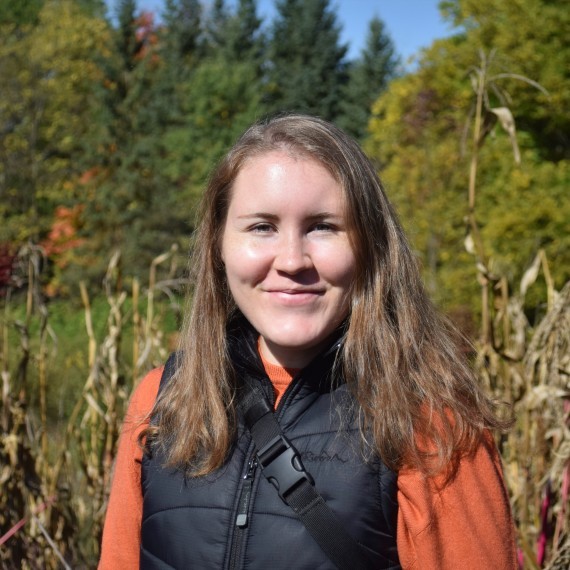The Looking Glass: Indigenous Mentorship in the Academy – A Love Letter to Indigenous Scholars Everywhere

I remember the first time that I disclosed my Indigenous identity in a class. The students that were sitting around me almost did, what seemed to be, an over-exaggerated double-take that practically took their necks out and made their eyes pop out of their heads.
This is what I had been avoiding for so long. Well, that and the questions about my ancestry and the inadvertent racism that creeps into someone's voice that "just wants to understand my culture." These questions were always daunting because I was still trying to figure them out for myself.
Although I was still scared to call myself Indigenous in spaces that I had not before (and recognizing my privilege to do that in the first place), I felt like I was finally ready to take the first steps in claiming my identity and exploring who I am within the larger kinship networks that surround me.
However, with this new external facet of my personhood came many obstacles to feeling culturally safe and well in an institution (and broader world) that has for so long been harmful to Indigenous ways of being, knowing and doing. I was culturally coming out into a politically complicated space that I did not know how to navigate as both an emerging scholar and a (re)connecting Métis woman.
So, what did I do? First, I panicked – but, after spending enough time sulking, I reached out to the community. I was lucky enough to find Dr. Kim Anderson and her Kitchen Table lab. Coming into my master's degree at the University of Guelph, I craved not only scholarly mentorship but interaction with Indigenous relations that had traversed this path before me. I needed the mentorship, not just supervision.
So, when Dr. Anderson welcomed me into her research space, I immediately felt the good medicine of Indigenous comradery and relation-building that I was looking for. Dr. Anderson has since provided me with much more than I could have hoped for from a mentor – she has provided me with the intergenerational love that we are taught in our Original Instructions. She uses her gifts to help the students that gravitate toward her giving and studious spirit.
Since becoming a graduate student at Guelph in September 2021, I have been a part of community design workshops for Dr. Anderson's new research lab – Nokom's House; I have attended an international field school in Sweden to have conversations with the Sámi Peoples; I have attended multiple Indigenous conferences (virtual and in-person); I have received educational and spiritual guidance when I need it most; and I have been truly valued as a young scholar. All at the hands of Dr. Anderson and the fulfillment of her responsibilities to her relations.
I picture other young Indigenous Peoples across the world that dream to go to graduate school but fear that they will be swallowed by the colonial agenda at every corner. These are real fears – especially if the Indigenous mentors are not there to help bring these young people along for the ride. So, what am I really saying?
We need consistent and plentiful Indigenous staff within all Canadian institutions so that Indigenous students know they have the mentors that they need along the way to prioritize their physical, mental, emotional, and spiritual health. We need the master's supervisors that will take breaks from a writing retreat to do ceremony with you and we need the mentors that will fund their students to go meet other Indigenous scholars across the world.
We need people in the institution that will invest in us and our dreams. So, when another Indigenous student steps forward into their identity and needs others to support them, they are there. I am fortunate to be in the place that I am as an emerging scholar, and I am so honoured to be a part of exciting new projects. However, I am the exception most of the time – not the rule.
In order to create a decolonized and Indigenized campus to promote an opposing narrative to this dynamic, we must have actual Indigenous Peoples present as part of the institutional community; and not just a few here and there but many. We need to have Indigenous students and faculty that know that they will be able to create their own communities of practice within the institution – communities based on love, comfort, and safety.
I am hopeful for a future that sees this come to fruition and grateful to the Indigenous faculty that do the good work that they do – giving life to all life. If we work to create academic spaces in which diverse bodies are accepted and reflected in the make-up of all who traverse them, we work toward a future in which the incoming Indigenous student does not need to hide their identity for fear of scrutiny, loneliness, or shame.
Sarina Perchak is a MSc student in the Department of Family Relations and Applied Nutrition.
In 2023, Sarina was presented the Kishaadigeh Award for her contributions to the First Nations, Inuit and Métis students at U of G and the wider community which build human relationships and a real relationship with the land she works on. She has made a notable impact as a member of Wisahkotewinowak, an urban Indigenous Garden collective; by teaching U of G students about opportunities to strengthen relationship with the land and Indigenous food sovereignty; and by facilitating a youth-led research project with White Owl Native Ancestry. Learn more about Sarina's work.